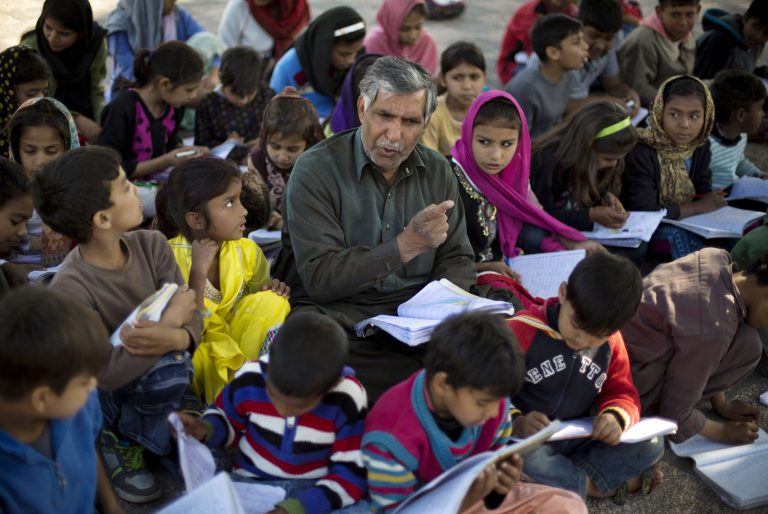
Fifteen years after 164 countries agreed to set goals to increase worldwide access to and quality of education, a disappointing minority has achieved the six Education for All objectives.
According to a report released Wednesday by the UN Educational, Scientific and Cultural Organisation (UNESCO), just one third of the countries that signed on to the Education for All (EFA) agenda back in 2000 have achieved all six of the Millennium Development Goals set at the time. Only half of the signee countries have reached the target of universal primary enrolment, and three-quarters have failed to halve adult illiteracy.
Niger, Chad, Pakistan, Nigeria and Ethiopia were singled out as countries with especially low performance when it came to meeting international educational targets.
Moreover, UNESCO said, the global emphasis on universal primary education as a main issue has taken attention away from other key aspects of educational development, including quality of education, adult literacy and early childhood care.
The report was timed to be released before the World Education Forum, being held in May in South Korea.
“Despite not meeting the 2015 deadline, millions more children are in school than would have been had the trends of the 1990s persisted. However, the agenda is far from finished,” said Irina Bokova, UNESCO’s director general. “We need to see specific, well-funded strategies that prioritise the poorest, especially girls, improve the quality of learning and reduce the literacy gap so that education becomes meaningful and universal.
Although pupil-teacher ratios at the primary level decreased in 121 countries between 1990 and 2012, the world still needs 4 million more teachers in order to ensure that all primary-school children are receiving a quality education.
“Trained teachers remain in short supply in one-third of countries: in several sub-Saharan countries, less than 50 percent are trained,” the report said.
The Millennium Development Goal (MDG) for education aimed to see all children completing a full course of primary education by 2015 – a plan that has clearly fallen short. However, according to the UNESCO report, this overriding emphasis on primary education meant that the majority of energy and resources in public education policy were devoted solely to encouraging primary education as the MDGs shaped global policy more and more.
An extra $22 billion a year will be needed to ensure countries reach new education targets now being set for 2030, according to the UNESCO report.
Adult illiteracy continues to be a major problem area, especially in developing countries. The EFA goals set a target of a 50 percent reduction in adult illiteracy by 2015, but only one-quarter of countries managed to meet this goal.
“While globally, the percentage of illiterate adults fell from 18 percent in 2000 to 14 percent in 2015, this progress is almost entirely attributed to more educated young people reaching adulthood. Women continue to make up almost two-thirds of the illiterate adult population. Half of sub-Saharan African women do not have basic literacy skills,” the report said.
The research found that 38 countries increased spending by one percentage point or more of national income between 1999-2012, but for most of them, education was not a priority in the budget.
UNESCO is encouraging national governments to require at least one year of pre-primary education, and to abolish fees for tuition, textbooks, uniforms and transportation.







